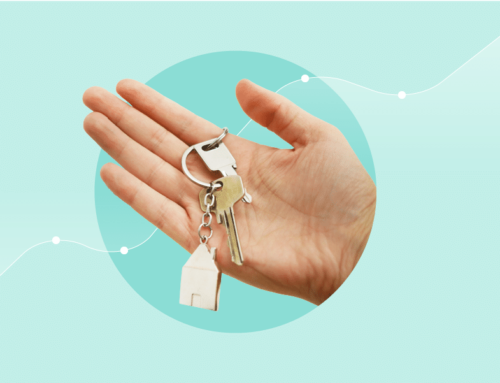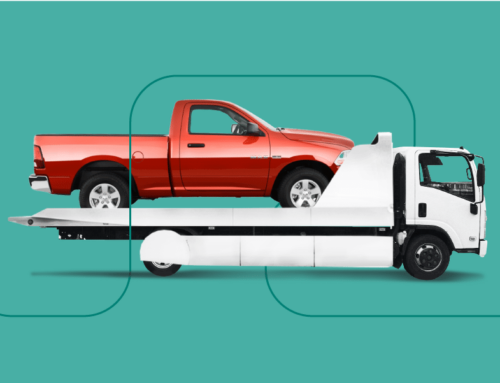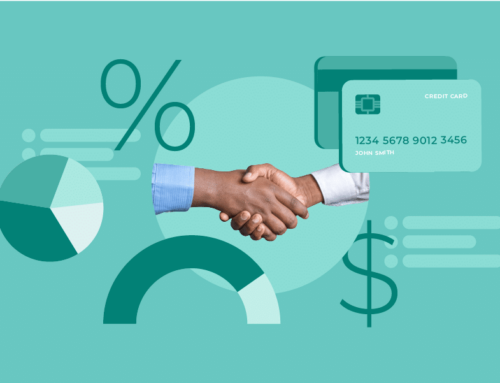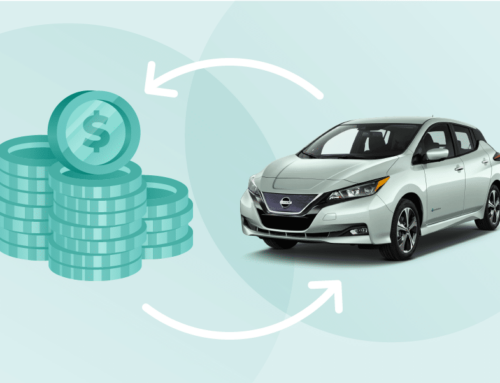A consumer proposal is a consolidated debt repayment plan that is structured and administered by a government-authorized Licensed Insolvency Trustee.
It can be used when you have unsecured debt between $5,000 and $250,000. Unsecured debt refers to credit card debt, lines of credit, car loans, payday loans, income taxes, personal loans, and other consumer credit. Student loans can also be included in a consumer proposal once you’ve been out of school for seven years or longer.
A consumer proposal can be an effective way to tackle unmanageable debt. You don’t get to write the debt off like in bankruptcy proceedings. Instead, the proposal trustee will negotiate with all of your creditors to get them to accept a percentage of your debt. While going through it, you can keep your assets and still have access to certain forms of credit.
These proposals set up an interest-free repayment of a percentage of your unsecured debt over a maximum period of 5 years. However, there is always an option of paying it off early! In this blog, we will show you some of the benefits of paying it off early and how to get a head.
Can You Pay Off a Consumer Proposal Early?
Yes, you absolutely can. A consumer proposal gives you the complete freedom to make early payments with zero penalties or restrictions. That’s because this is a stable, government-regulated debt repayment plan.
You are obligated to pay a minimum of what was agreed to but can choose to get ahead if you want.
You can pay off a consumer proposal early:
- as a lump sum
- by making slightly higher payments
- by making early payments
- by making more frequent payments, etc.
These early payments will be applied to the loan’s principal and administrative fees in the same percentage as a regular payment.
There’s no risk of having early payments be redirected towards interest, fees, and other manipulative financial penalties like credit cards or other loans sometimes do.
There’s pretty much no downside for paying off a consumer proposal early unless it puts you in financial danger.
Pros and Cons of Paying Off a Consumer Proposal Early
Let’s take a closer look at that. What are the benefits of paying off a consumer proposal early and what are a few reasons not to?
Here are the pros of paying off a consumer proposal early
The pros are easy. You get out of debt faster. You can get a mortgage faster. You can restore yourself to full creditworthiness faster. You start the clock ticking to have the proposal drop off your credit report faster.
The consumer proposal term lasts for five years. After that, the record lasts on your credit report for three years. That means it can take up to eight years to successfully get through a consumer proposal.
That’s a long time to have low credit and other financial restrictions. It’s completely understandable to want to speed this up.
You can also pay off a consumer proposal early so that you have some wiggle room in case of later financial hardships. These plans permit you to have two cumulative missed payments at any time. If you reach a third, the proposal will become nullified. You might want to add in some extra payments when you have spare funds, to build in more of a buffer zone.
Here are the cons of paying off a consumer proposal early
It’s easy to inadvertently put yourself at financial risk by committing too much of your income to early payments.
Remember that a consumer proposal is an interest-free repayment plan. That’s a huge advantage for paying off debt in a manageable way over time. You won’t be saving yourself extra interest by paying it off early.
If you get rid of it too quickly, you might find yourself needing to acquire a line of credit, alternative financing loan, or simply resort to credit cards. And standard loans and credit extensions all come with interest. There’s no point in paying off a consumer proposal early if it forces you to rely on irresponsible forms of credit.
Your ability to save money has to be preserved. Would paying off the proposal early require you to put less into your retirement fund or other investments?
It isn’t a good idea to put less money into interest-building savings so that you can get ahead on a manageable, interest-free, consolidated debt plan. And it’s never a good idea to pull money from your savings so that you can add in extra payments.
You may consider getting out of a consumer proposal to be your main financial priority. However, this is dangerous and irresponsible if it isn’t within your financial abilities.
Your debt repayments should leave you plenty of room for living, saving, and investing. You may even want to use it to help give you a bit of a buffer zone as you work to rebuild your finances.
The Consumer Proposal Loan Early Payment Option
Did you know that you can get a consumer proposal loan intended just for this purpose? It will help you rebuild your credit and pay off the consumer proposal earlier while keeping your savings in your pocket.
Let’s face it, most people who go through a consumer proposal don’t have a lot of extra cash to spare. That’s why they need this option in the first place.
If you’re in this situation, you may want to consider using a loan to pay off a consumer proposal. It can help you pay the proposal off earlier without taking from your savings or overextending yourself.
That might not sound prudent at first. After all, you’re going through this process so that you can eliminate unsecured credit and not take more on. But we’re not talking about shady payday loan providers here.
These are specialized loans to pay off a consumer proposal from reputable alternative lending companies. They include financial protections that are guaranteed to raise your credit score and help you through the proposal.
We’ll talk about this option in more detail further down.
How Consumer Proposals Affect Credit Scores, Credit Reports, and Historic Reports
Consumer proposals inflict serious damage to your credit score. That’s not an understatement.
To begin with, your credit score is probably on the lower side once you reach the point of needing a consumer proposal. Then once you go through with it, it will add an R7 rating to your report.
Here’s what that means.
Canadian credit scores range from 300 to 900. Scores below 560 are considered poor. Scores from 560 to 659 are considered fair. Scores from 660 to 759 are in the good to very good range. And anything from 760 up is excellent.
These scores are determined by factors related to how much credit you have, whether or not you make your payments on time, and how often you apply for credit. The credit report categorizes different types of credit and ranks you from 1 to 9 in each one. A rating of 1 shows that you make your payments on time. A rating of 9 is the worst and is reserved for uncollectible debts or bankruptcy filings.
A consumer proposal is a form of revolving credit with a rating of 7 (occasionally it will have an R9 rating). It’s the second most damaging thing you can do to your credit score. Filing for bankruptcy is the only thing that’s worse.
This rating remains on your credit report for three years after you’ve finished paying off the debt or six years after the proposal was filed for – whichever comes sooner.
But is that the worst thing? Not necessarily. You can eliminate the negative impact of several other credit accounts by wrapping those up into the consumer proposal. It might worsen your score temporarily, but it’s the first step towards a better financial standing.
Credit Building After a Consumer Proposal
You need to understand how to actively build your credit if you are going through a consumer proposal. This debt repayment plan damages your credit to such a degree that it can’t be taken lightly or left to correct itself.
It won’t be overly difficult. It only takes some financial prudence and consistent discipline.
Three Steps to Credit Building After a Consumer Proposal
- make regular proposal payments
- use a secured credit card
- get a loan
A consumer proposal gives you two opportunities to slip up. On the third one, you’re out. You cannot have more than two outstanding payments. If you miss the third, the entire thing will be undone. All your debts will return to their original accounts and start hammering away at your credit report again. That can be a nightmare if you’re two or three years into the process, with just a few more to go. Take care to make your payments and consider building in some spare room with early payments.
Then, consider getting a secured credit card once you feel comfortable managing the consumer proposal. You will need to demonstrate that you can make regular timely payments in order to build a good credit report. You can get started on that with a secured credit card.
A secured credit card is a good start. However, it will usually be a small amount of credit. You may want to get yourself a car loan, line of credit, or another form of financing. Building a higher credit score depends on showing that you can handle larger amounts of credit.
This means that restricting yourself to a credit card with a low balance won’t rebuild your credit as quickly as larger forms of financing will. You might not want to take out unnecessary loans, but there’s no reason to avoid credit if it fits your needs.
Fastest Way to Pay Down Your Debt? Try CreditMeds

Debt or financial burden has some degree of impact on our emotional well-being, productivity, and overall mental health. At Marble, we’ve developed a free assessment tool to guide people to the best solution for their debt. The 15-question survey help identify the most sustainable solution out of debt while maintaining your financial goals and habits. CreditMeds is designed to help alleviate the stress of calculating the best way out of debt. We do the math for you to figure out: monthly payment, total interest paid, and even impact to credit score.
CreditMeds is a free and no obligation assessment tool. Give it a try with a free MyMarble account today!






